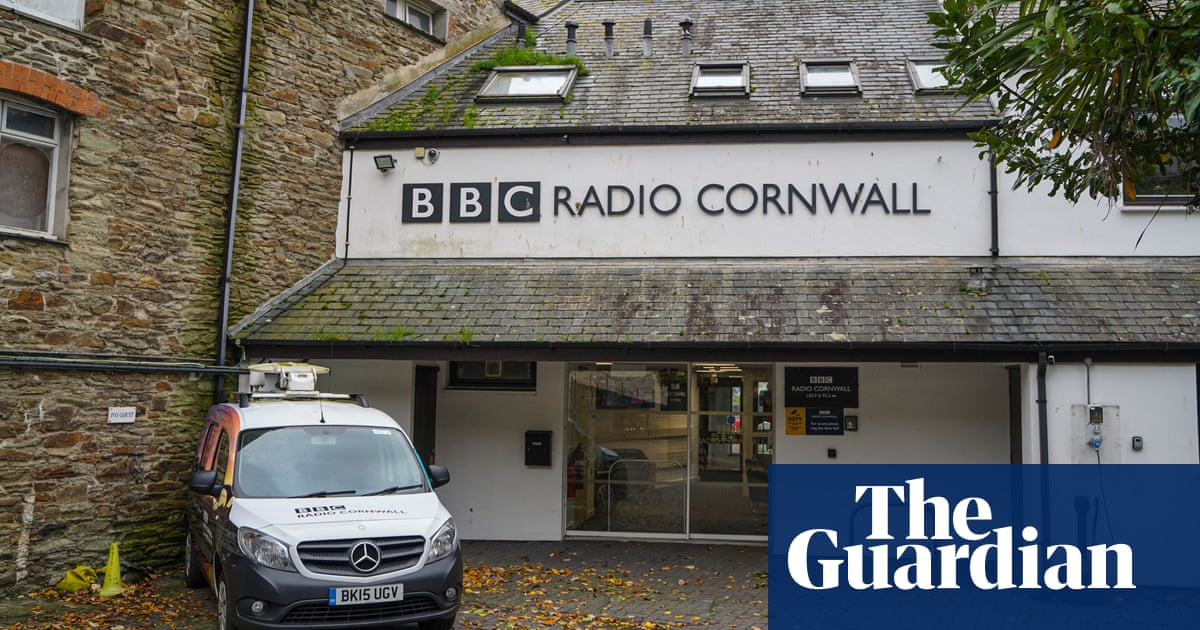
The BBC is facing a backlash from listeners, concerns from the regulator Ofcom and potential legal action over controversial cuts to its local radio output.
Complaints have been made about the corporation’s decision to share more programmes across its 39 local stations and about the axeing of presenters.
The BBC announced last year that it wanted to modernise its local coverage by putting more news online and creating a new network of investigative reporters. It also needs to make savings as a result of the government freezing its licence fee for two years and plans to abolish it completely in 2027.
About 45 presenting posts have gone so far, and many BBC local stations in England now have shows from their area only until the afternoon, when they share output regionally or nationally until about 6am the next morning.
Many listeners, particularly elderly people without smartphones, are upset at the disappearance of their favourite local hosts, many of whom were praised for their incisive interviews of Liz Truss last year.
Audiences have threatened to boycott BBC Radio Kent – the Radio 2 presenter Tony Blackburn was drawn into an exchange on social media about the issue – while a Facebook group is campaigning to reinstall the BBC Hereford and Worcester presenter Malcolm Boyden.
The new system has sometimes left staff struggling with technical issues: traffic news for one city in the Midlands ended up on another station, an online report about Stoke-on-Trent landed on BBC South, and BBC and 5Live suddenly appeared on BBC Radio Norfolk.
The schedule changes include an evening Radio 2-style show called Late Night with …, which has the slogan “The sound of where we live and all the music you love, on your local BBC radio station”, but is actually broadcast from London or Salford across about 24 BBC radio stations.
The new lineup also meant that the night Storm Ciarán hit Guernsey, BBC Radio Guernsey was not broadcasting on the ground until 6am the following morning, which drew complaints.
The former BBC English Regions controller Andy Griffee said on X, formerly Twitter: “It’s all gradually destroying the essential point of BBC local radio, which is its localness and the attachment people have to particular communities.”
The broadcasting regulator, Ofcom, is also understood to be raising concerns about the transparency and details of the cuts in its forthcoming annual report.
Many departing presenters gave emotional on-air farewells and shared audience tributes. The BBC Radio Devon host David Fitzgerald, who suffered a heart issue on air after being told he was being made redundant, was sent a video by the diver Tom Daley – who was interviewed by Fitzgerald while growing up – thanking him, while BBC Radio Gloucestershire’s Faye Hatcher revealed that the process had made her feel depressed, saying leaving listeners was like a bereavement. BBC Radio Sheffield’s Howie Pressman was lauded by The Sixth Commandment writer Sarah Phelps after reading out a listener’s moving message saying his show had been one of the few highlights for his late bed-bound wife.
One staff member said: “The loss of the presenters means contacts built up over years and community connections are lost.”
It is understood that some presenters are in discussions over redundancy pay, because for some of their tenure, the BBC asked them to set up personal service companies, which classed them as self-employed instead of being on payroll.
Some are also considering legal action over whether the interview process, which involved many presenters reapplying for their own jobs, was fair.
The radio expert and co-founder of Boom Radio, David Lloyd, said that with almost 80% of BBC local radio’s 5 million-plus listeners aged over 55, “many vulnerable audiences are left behind”. He suggested savings could have been made instead by closer working between local stations’ online and broadcast teams.
Members of the National Union of Journalists have been striking over the cuts. A ballot to end the industrial action closes on Monday, but the broadcasting official Paul Siegert said the union was concerned that the changes were “hollowing out [the BBC’s] ability to fulfil its remit and duty as our public service broadcaster”.
Commercial rivals argue that the BBC is encroaching on traditional publishers’ territory by focusing more on online content. They also question how local democracy will be affected.
An Ofcom spokesperson said it was “committed to monitoring the progress of the BBC’s changes to its online local news offering and any impact this may have on other local news providers”.
A BBC spokesperson said it was broadcasting “thousands of hours of local radio output each week without significant issues. Each of our stations have fantastic teams who are passionate about the people, stories, and news in communities across the country. We continue to give our audiences a voice and hold to account people in power where they live.”
BBC faces broad backlash over cuts to local radio output - The Guardian
Read More
No comments:
Post a Comment